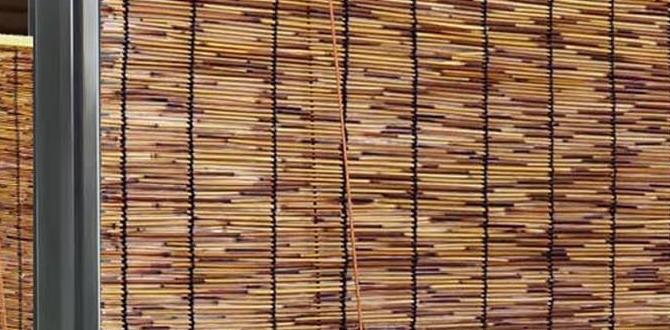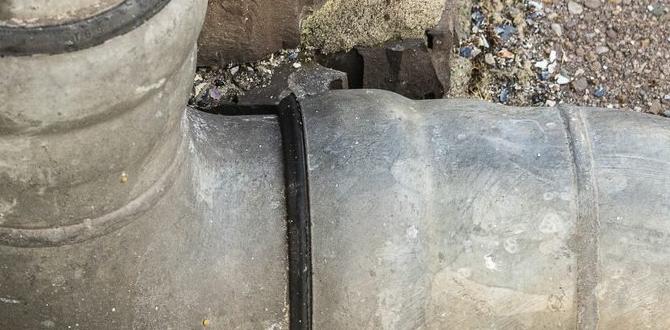Have you ever watched a dragonfly zoom past in your garden? They dart around like tiny helicopters, don’t they? But did you know they can actually help your garden thrive? Many people wonder, “Are dragonflies good for gardens?” The answer is a resounding yes!
These amazing insects are not just pretty to look at. They are natural hunters of pesky bugs. Dragonflies eat mosquitoes and other annoying pests that can damage your plants. Imagine having fewer bites when you’re playing outside!
Here’s a fun fact: a single dragonfly can eat hundreds of mosquitoes in just one day. Isn’t that cool? So, if you want a healthy garden, welcoming dragonflies can be a great idea. They bring beauty and help keep your garden balanced.
Let’s explore why these little creatures are beneficial. You’ll find that they are not only good to have around but also fascinating to watch as they flit from flower to flower.
Are Dragonflies Good For Gardens? Discover Their Benefits!
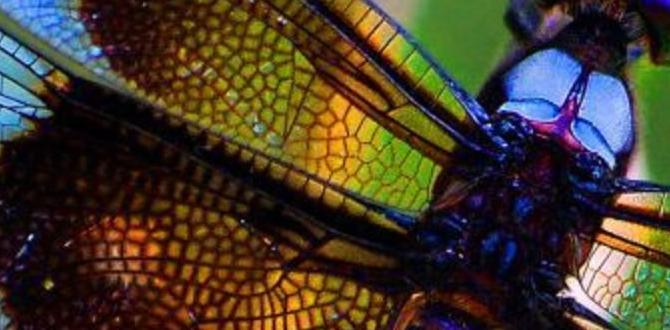
Are Dragonflies Good for Gardens?
Dragonflies are more than just beautiful insects; they are a gardener’s best friend! These flying wonders help control pests by eating mosquitoes and other harmful bugs. Did you know that a single dragonfly can eat up to 100 mosquitoes in one day? This makes them natural pest controllers. Adding a pond or water feature to your garden can attract these friendly creatures. With dragonflies around, your garden stays healthy and vibrant, making it a lovely space to enjoy!Understanding Dragonflies
Definition and lifecycle of dragonflies. Key species of dragonflies commonly found in gardens.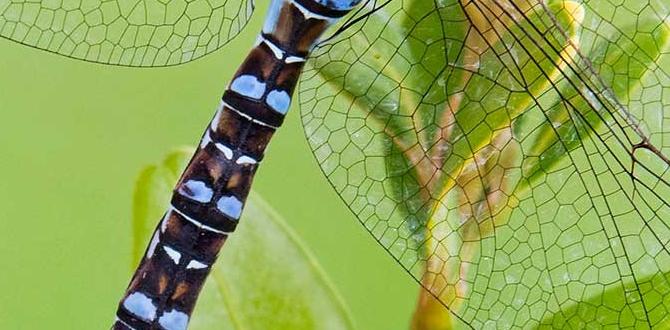
Dragonflies are fascinating insects with delicate wings and colorful bodies. They go through a lifecycle that starts as eggs, turns into nymphs, and finally becomes the beautiful adult dragonflies we see. Most spend many months in water before taking to the sky. In gardens, you can often spot key species like the Eastern Pondhawk or the Common Green Darner. These garden buddies help control pesky insects. Who knew that having them around could be like hiring tiny flying superheroes?
| Species Name | Characteristics |
|---|---|
| Eastern Pondhawk | Bright green, good at catching mosquitoes. |
| Common Green Darner | Large and lively, migrates for the winter. |
Benefits of Dragonflies in Gardens
Natural pest control and reducing harmful insects. Enhancing biodiversity and ecosystem health.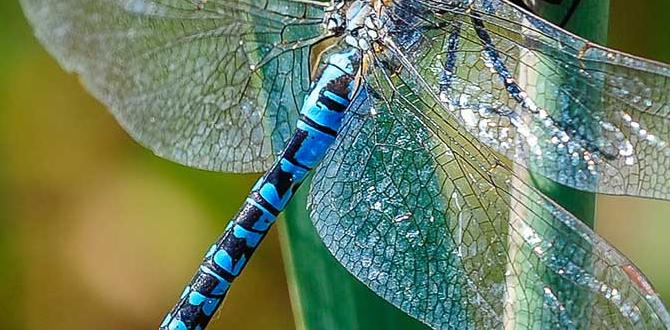
Dragonflies are great helpers in the garden. They catch pesky insects, like flies and mosquitoes. This natural pest control keeps gardens safe and healthy. Less harmful bugs mean happier plants. Also, dragonflies support many other garden creatures. They help improve biodiversity and the overall health of the ecosystem. Their presence shows that the garden is a lively place. That makes the garden more beautiful and balanced.
Why are dragonflies important for gardens?
Dragonflies help control pests and support the ecosystem. They make gardens better for plants and animals alike.Key Benefits:
Dragonflies and Water Features
Importance of ponds and water sources for attracting dragonflies. Best practices for creating a dragonflyfriendly water feature.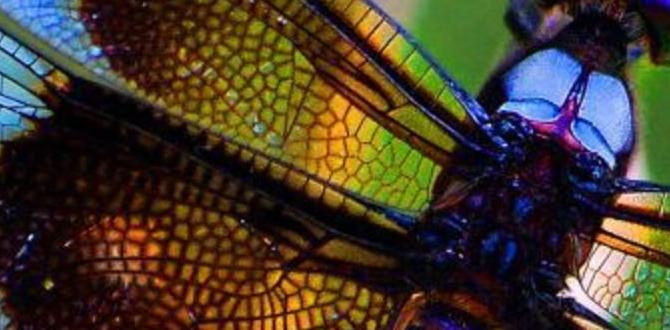
Ponds and small water sources are key to attracting dragonflies. These insects love water because they lay eggs near it. A water feature also gives them a place to hunt for food. To create a dragonfly-friendly pond, follow these tips:
- Make the pond shallow with sloped edges.
- Add rocks and plants for hiding spots.
- Keep the water clean and free of chemicals.
- Avoid fish that eat dragonfly larvae.
With the right setup, your garden can become a lively place full of dragonflies!
Why are ponds important for dragonflies?
Ponds are crucial for dragonflies because they provide breeding grounds and sources of food. The water helps maintain a healthy ecosystem for these beautiful insects.
Creating a Dragonfly Habitat
Preferred plants and landscape features to attract dragonflies. Environmental conditions that support dragonfly populations.
Creating a home for dragonflies is fun and easy! Choose plants like catmint, butterfly bush, and water lilies to attract them. They love sunny spots too. Add a small pond or stream for them to lay eggs. Keep the area free from strong chemicals because dragonflies need clean water to thrive.
- Sunny areas are best for dragonflies.
- Shallow water helps them grow.
- Native plants support more dragonflies.
What do dragonflies need to thrive?
Dragonflies need clean water, sunlight, and lots of plants to hide and hunt. They thrive where their habitats are healthy and protected.Common Myths About Dragonflies
Debunking misconceptions related to dragonflies’ behavior. Clarifying the role of dragonflies in the garden ecosystem.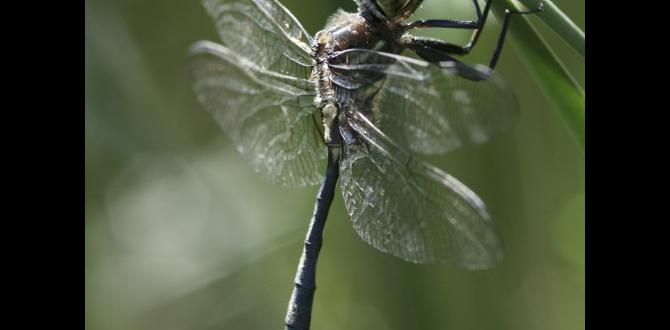
Many people believe dragonflies are scary or harmful. This isn’t true! Dragonflies are friendly insects that help gardens. They eat pests like mosquitoes and flies. This makes them important for keeping your garden healthy. Here are some myths about dragonflies:
- Dragonflies bite – They do not bite humans!
- Dragonflies are bad for plants – They help by eating harmful insects!
- Dragonflies are dangerous – They are harmless and very helpful!
Learning about dragonflies helps us see how they fit into nature. They are great allies for gardeners!
Impact of Pesticides on Dragonflies
How pesticides affect dragonfly populations. Organic alternatives to manage pests without harming dragonflies.Pesticides are not dragonflies’ best friends! These chemicals can harm dragonfly populations, making them disappear faster than a magician’s rabbit. Studies show that pesticides kill the insects dragonflies rely on for food. A world without dragonflies means fewer natural pest controllers in gardens. Thankfully, there are organic alternatives to manage pests that won’t send dragonflies packing.
| Organic Pest Control OptionsEffectiveness | |
|---|---|
| Neem Oil | Effective against many pests |
| Companion Planting | Strongly deters unwanted bugs |
| Insecticidal Soap | Works on soft-bodied insects |
Encouraging Dragonfly Activity in Your Garden
Tips for fostering a welcoming environment for dragonflies. Seasonal activities to attract and support dragonflies yearround.Dragonflies love gardens that attract them. To welcome these amazing insects, add a water feature. Even a small pond or birdbath works! Plant native flowers nearby. They provide food and shelter. Keep your garden chemical-free. This keeps dragonflies safe. In spring and summer, leave some tall grass. It makes a perfect home. In autumn, clean up debris gently. This helps dragonflies stay hidden during winter. With these tips, you’ll see more dragonflies in your garden!
What plants attract dragonflies?
Native plants like milkweed, asters, and violets attract dragonflies. They provide food and a cozy home.
Seasonal Activities to Attract Dragonflies:
- Spring: Add a water feature.
- Summer: Plant native flowers.
- Autumn: Keep tall grass for warmth.
- Winter: Clean gently.
Conclusion
In conclusion, dragonflies are excellent for gardens. They eat pesky pests like mosquitoes, helping keep your garden healthy. You can attract them by adding water features and native plants. Watching dragonflies can also be fun! So, consider making your garden dragonfly-friendly. For more tips, check out gardening books or websites. Let’s create a vibrant garden together!FAQs
How Do Dragonflies Contribute To Pest Control In Gardens?Dragonflies are great helpers in gardens because they eat pesky insects. They like to munch on mosquitoes and flies. When you see dragonflies, you know they are keeping bugs away. By having them around, we can enjoy our gardens more. So, dragonflies help keep our plants safe and our outdoor fun!
What Types Of Plants Can Attract Dragonflies To My Garden?To attract dragonflies to your garden, you can plant bright flowers like daisies and asters. They love to hang around tall plants like reeds and cattails, too. Adding water plants like water lilies can help since dragonflies lay eggs near water. Try to create a small pond or even a birdbath; dragonflies need places to drink. With the right plants, you’ll see lots of dragonflies flying around!
Can The Presence Of Dragonflies Indicate A Healthy Ecosystem In Garden Environments?Yes, dragonflies can show that a garden ecosystem is healthy. They eat pests like mosquitoes, helping to control their numbers. When you see dragonflies, it means the garden has clean water and a lot of food for them. This is a good sign for plants and other animals too. So, if you spot dragonflies in your garden, that’s a great thing!
What Benefits Do Juvenile Dragonflies (Nymphs) Provide To Garden Habitats?Juvenile dragonflies, called nymphs, help make our gardens better. They eat lots of pesky bugs, like flies and mosquitoes. This keeps the number of bugs down. Nymphs also help clean up the water in ponds. Having them around makes our gardens healthier and more fun!
Are There Any Specific Gardening Practices That Can Help Encourage Dragonfly Populations?Yes, you can help dragonflies in your garden! First, add a small pond. Dragonflies like to lay eggs in water. You should also create sunny places for them to warm up. Plant lots of flowers to attract other bugs, which dragonflies eat. Finally, avoid using pesticides, as they can harm dragonflies and their food.



